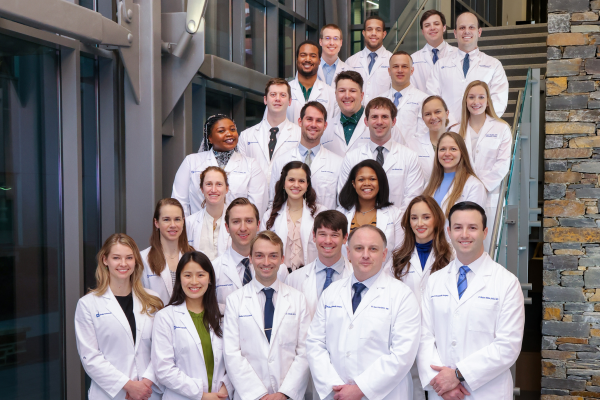
Department Chair: Benjamin Alman, MD
Residency Program Director: William C. Eward, MD, DVM
Program Coordinator: Wendy Thompson, C-TAGME
The Duke Orthopaedic Surgery Residency is a comprehensive, five-year, ACGME-approved training program (#2603631091) for eight (8) positions. Our mission is to equip clinicians and surgeons with the skills necessary to practice competently and ethically as academic or community leaders.